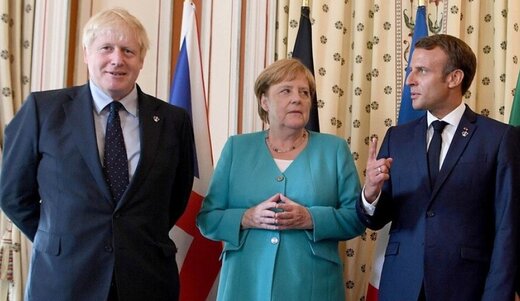Dr. Abdorreza Farajirad told the Strategic Council on Foreign Relations that Germany has been sensitive about the Iranian missiles and when Donald Trump withdrew from the nuclear deal and Europeans demanded the return of Washington to the JCPOA, Europe and especially Germany emphasized the importance of negotiating over the Iranian missile issue.
Farajirad was referring to the recent remarks and claims of the German Foreign Minister Heiko Maas about the formation of an agreement with Iran beyond the nuclear deal which could also encompass the ballistic missile program of Iran.
He said US President-elect Joe Biden has stressed the close cooperation of his administration with the European allies of the United States in order to return to international agreements, adding that the European countries now feel that a good opportunity has been created for them to raise their demands.
“In fact, the Europeans are testing the waters to see if they can succeed in incorporating the ballistic missile program of Iran into nuclear negotiations and encourage Iran to agree with the JCPOA Plus.”
Farajirad said German Foreign Minister’s remarks on incorporating the missile program of Iran into the nuclear negotiations may be a reaction to the enactment of the Iranian parliament entitled “The Strategic Act of the Islamic Consultative Assembly to Remove Sanctions” as Joe Biden also signalled a reaction albeit a weaker one to this parliament act.
According to Farajirad, Biden insisted before the adoption of this parliamentary act that Washington would return to the JCPOA. However, after the act was adopted by the parliament, Biden said return to the JCPOA would be hard and we need to speak with the Europeans.
Pointing to the recent joint statement by France, the UK and Germany as the three European members of the JCPOA about the installation of three cascades of advanced centrifuges in the Natanz enrichment plant, and their emphasis on the non-compatibility of this installation with the JCPOA, he said Mass’s remarks are in violation of the JCPOA.
Referring to the remarks on regional issues, he said such issues are not related to the JCPOA.
Asked about the commitment of the West, in particular, the US and the EU to fulfilling their obligations as per the nuclear deal, Farajirad said the United States withdrew from the nuclear deal when Donald Trump came into the White House and put enormous economic pressures on Iran.
“However, the US President-elect Joe Biden has announced so far that he intends to return to the nuclear deal. Therefore, in connection to the American performance, we need to consider two administrations before and after Trump.”
He referred to the excuses Europeans have raised for their lack of cooperation with Iran within the framework of the JCPOA, saying European countries were claiming they are under pressure from Washington not to cooperate with Iran.
“After the withdrawal of the US from the nuclear deal, Americans said they will punish European private companies if they do business with Iran. And European companies had to pay a penalty but they chose not to take the risk.”
He said that the European countries, in spite of being under pressure by the US, should have identified solutions and mechanisms to cooperate with Iran and support its economy in accordance with the JCPOA.
Farajirad said neither Europeans nor Americans fulfilled their commitments as per the nuclear deal, adding “therefore, these countries cannot be demanding that another JCPOA is formulated after the recent developments in the United States because such as demand is not included in the text of the nuclear deal.”
According to Farajirad, when the US and Europe raise such issues not falling within the scope of the JCPOA, Iran can also reduce its commitments or reciprocate any failure by the West to comply with the provisions of the nuclear deal.










0 Comments